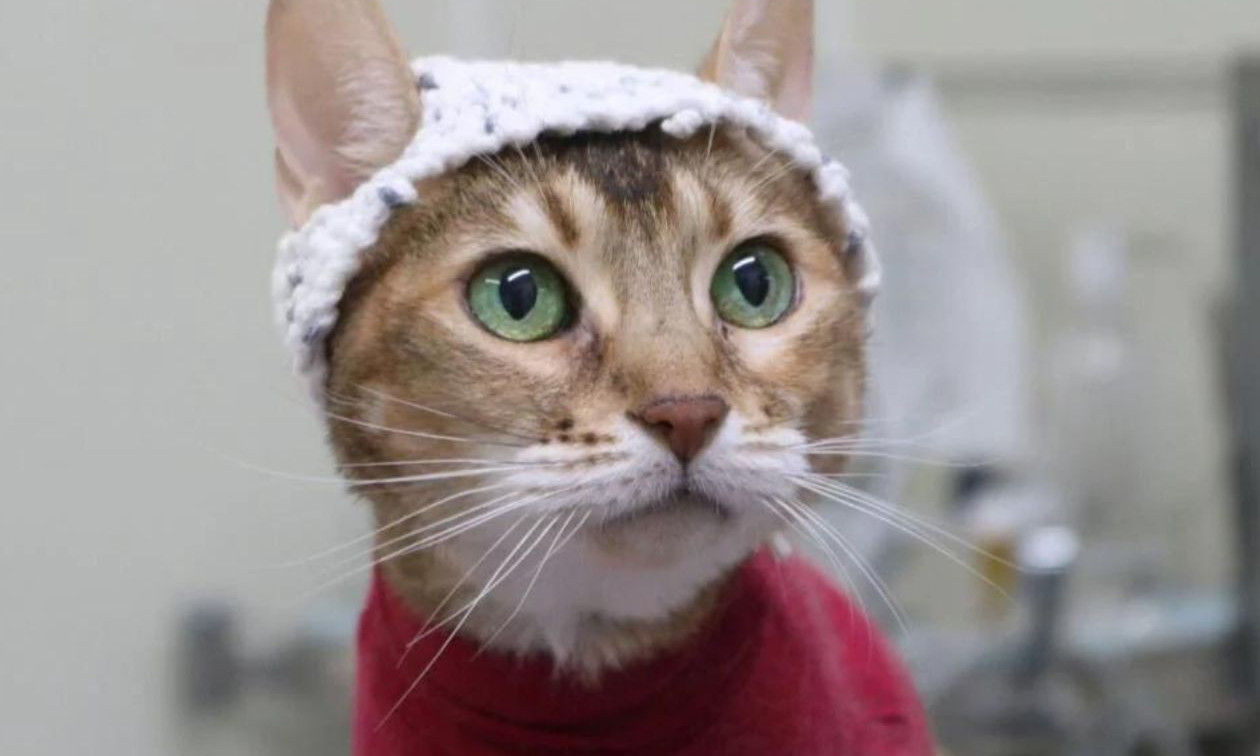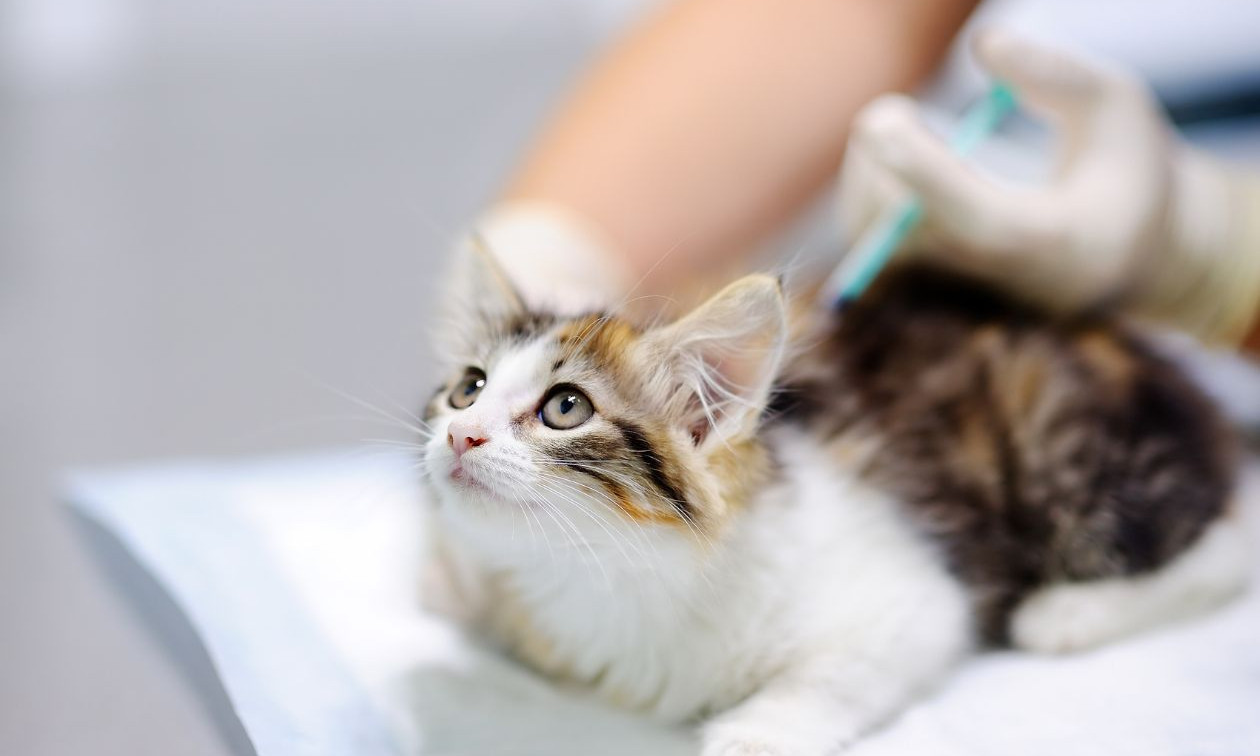Anxious cats prone to recurring cystitis

Are recurring bouts of cystitis in cats linked to stress? Yes, indeed, according to a study of 33 cats by a behavioural medicine team at the CHUV, the animal hospital of Université de Montréal's Faculty of Veterinary Medicine.
Done by Marianne Caudron, Pascale Laroche, Isabelle Bazin and Marion Desmarchelier and published in the Journal of Veterinary Behavior, the study casts light on a poorly understood and painful condition in cats.
A leading cause of emergency visits to the vet, feline idiopathic cystitis (FIC) is an acute inflammation of the bladder in cats that causes painful and sometimes bloody urination.
Usually, urine tests reveal no bacterial infection and scans show no evidence of stones or a tumour. The cystitis is therefore classified as idiopathic, meaning no organic cause has been detected.
“A similar condition with the same symptoms occurs in women and is often linked to high levels of stress or anxiety,” explained Desmarchelier, a veterinary behaviourist and professor.
One of the most worrying aspects of FIC is the high rate of recurrence—about half of affected cats experience repeat episodes.
“Some cats end up being euthanized because of it," Desmarchelier said. "The disease itself is not fatal, but the cost of repeated emergency treatments can be too much for some families."
Pandemic brought out the stress

The COVID-19 pandemic was a turning point in understanding how stress affects cat health. Millions of cats saw their daily lives upended when their human companions came home—and never left, a challenging situation for creatures known for their love of routine and tranquility.
“We were home all the time during the pandemic," said Caudron, a behavioural medicine resident. "Dogs were thrilled because they got lots of walks, but we saw twice as many cases of idiopathic cystitis in cats.”
So the CHUV team launched their study. In all, 33 cats (23 males and 10 females) diagnosed with idiopathic cystitis were included. Their human companions were asked to complete a detailed questionnaire about their cat's behaviour.
This included whether they feared strangers and were aggressive toward humans and other animals. Also probed were details of the cat’s living environment, such as access to food and a litter box and the number of other cats in the home.
The researchers divided the cats into two groups: those that had experienced a single episode of cystitis and those with two or more episodes. The team then looked for behavioural and environmental differences between the two groups.
They found that 94 per cent of cats with two or more episodes showed a marked fear of strangers, compared to 59 per cent of cats with one episode. This fear response is thought to be an indicator of underlying anxiety.
“We initially thought that anxious, aggressive cats would be more prone to recurrent cystitis, but it’s actually the fearful, withdrawn ones that seem to be at greater risk,” said Desmarchelier.
In other words, cats who internalize their stress by becoming nervous and withdrawn are more vulnerable to repeated bouts of cystitis than those who externalize their stress through aggression.
Medication isn’t the answer

The study’s authors call for a shift in perspective, arguing that treatment should extend beyond the bladder inflammation to address the cat’s overall mental well-being.
“We believe this condition is caused by stress and anxiety, and therefore should no longer be called idiopathic cystitis, but instead ‘cystitis secondary to anxiety,’” Desmarchelier said.
So how do you calm an anxious feline? Medication can help but it’s not enough. “It’s not a magic bullet,” said Desmarchelier.
For instance, if a cat is constantly harassed by other cats in the household, medication alone can’t solve the problem. The underlying problem needs to be addressed.
“It’s like someone who’s allergic to peanuts: you wouldn’t keep giving them peanuts every day and simply rely on an EpiPen to manage their reaction,” Desmarchelier said.
A comprehensive approach that considers the importance of the cat’s environment is necessary, she added. “We never treat an animal’s anxiety with medication alone. We also have to improve their living conditions.”
Helping cats stay happy
The study suggests some simple, concrete ways to reduce the stress:
- increase the number of water sources and use fountains;
- provide quiet, preferably elevated, resting areas;
- provide at least one more litter box than the number of cats in your home;
- offer a variety of toys in rotation, as well as imaginary hunting activities;
- and consider providing safe access to the outdoors.
While these changes weren’t shown by the CHUV study to prevent all recurrences of cystitis, they are key to reducing risk and promoting well-being, the researchers believe.
Cats tell us when something’s wrong
Feline idiopathic cystitis highlights an often-overlooked fact: in cats, as in humans, chronic stress can lead to real physical disorders. As Desmarchelier said, “this disease shows us the profound impact stress can have on health.”
The researchers believe that larger studies using standardized behavioural assessment tools are needed to better understand the link between anxiety and urinary health.
In the meantime, vets can start by asking a few simple questions about the cat’s behaviour and refer at-risk cases for behavioural therapy, the researchers say.
For humans who live with cats, it is important to understand that there’s a reason for their behaviour. Cats that urinate outside the litter box or have recurring bouts of cystitis aren’t being capricious; they are communicating that something’s wrong.
“Taking a cat to the vet twice a year for a urinary blockage costs a fortune!” Desmarchelier noted. “But it doesn’t have to be this way—there are solutions. That’s the message we want to get across.”



